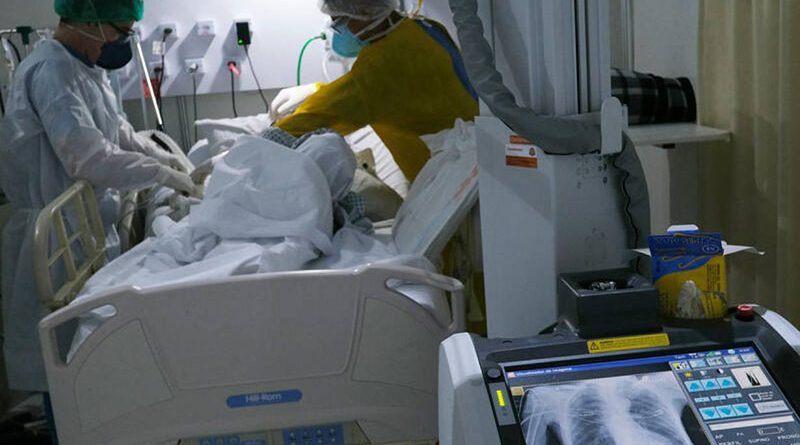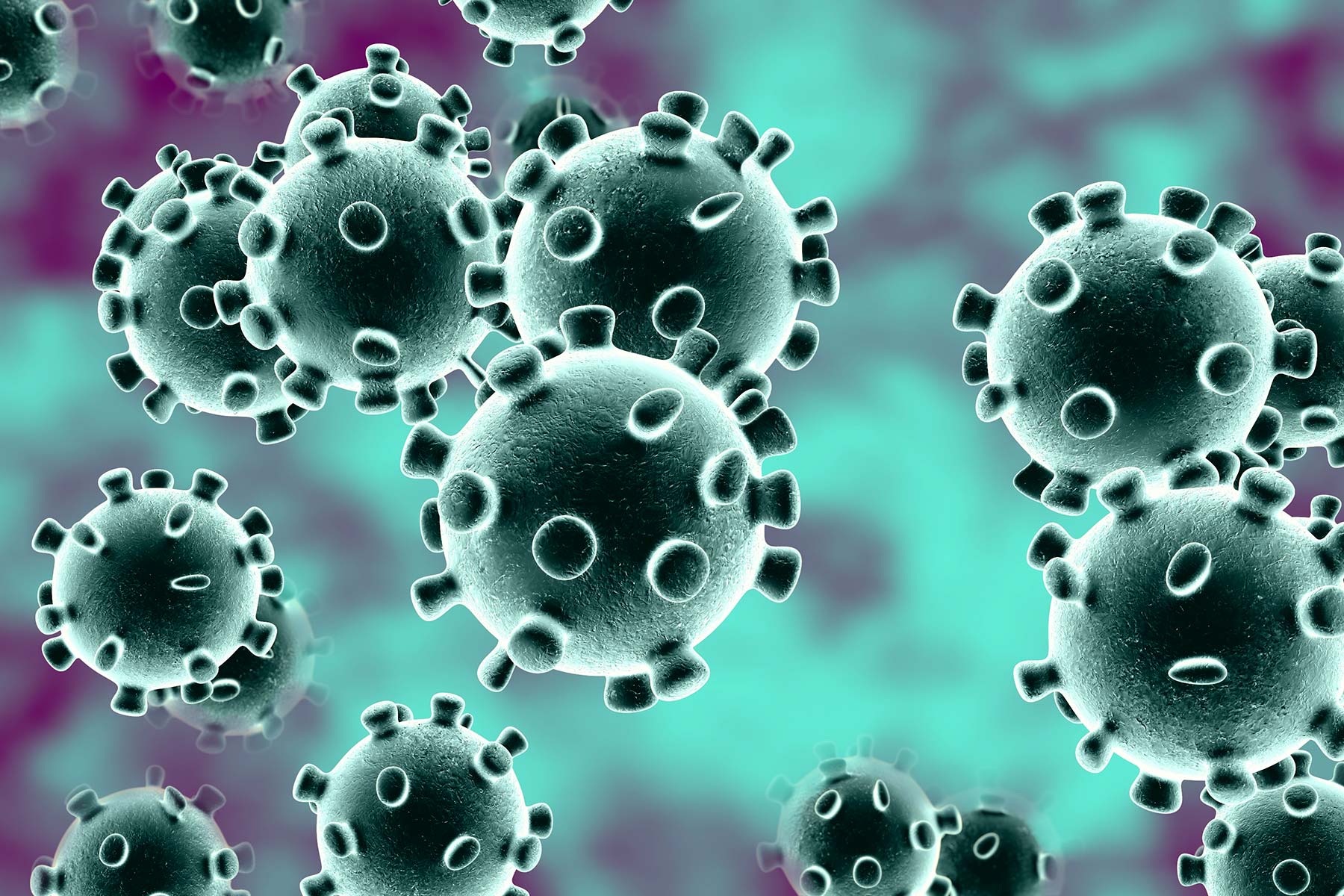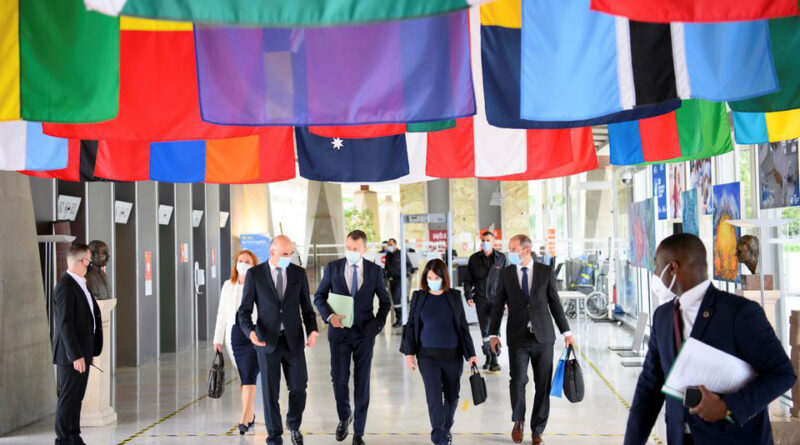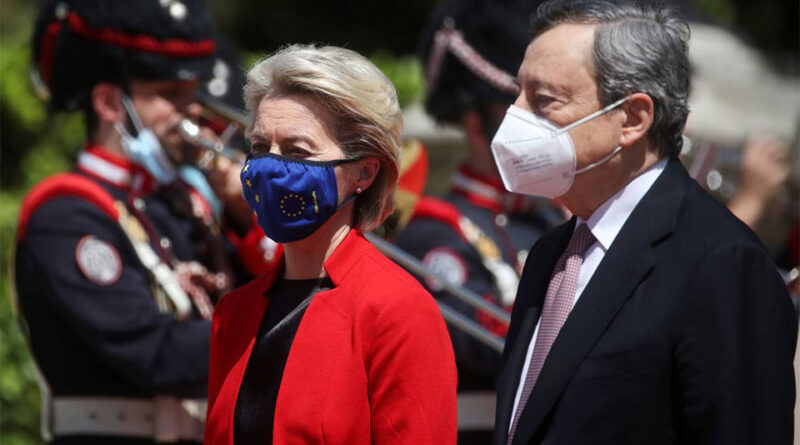Doctors Without Borders (MSF), an international medical humanitarian organisation now wants medical oxygen supply added to Covid vaccines and PPEs, at the heart of the global Covid-19 response.
This comes on the eve of the European Union parliament vote on the World Trade Organisation intellectual property rights (IPR) waiver for Covid-19 vaccines during the June 7-10 sessions.
“Before the pandemic we saw patients suffering from pneumonia, malaria, sepsis, and a variety of other conditions, as well as far too many premature babies, die due to a lack of medical oxygen,” said Dr Marc Biot, MSF director of operations.
“Covid-19 has brought this issue into sharp focus. Unstable oxygen supplies kill.”
“Countries for the waiver are not asking for charity, but for the right to develop and make their own vaccines, more affordable medicines, reagents and other health technologies free from worry that they will be blocked or sued by IP holders,” said Leena Menghaney, Global IP Advisor, MSF Access Campaign.
European Commission President Ursula von der Leyen expressed willingness to explore a waiver after President Joe Biden last week promoted the plan, reversing the US position.
Whilst hospitals in wealthy countries have their own oxygen plants and pipe highly concentrated oxygen to the bedside, patients in developing countries I must rely on bulk, expensive and easily depleted oxygen cylinders or small oxygen concentrators which are not sufficient for critical patients.
“Oxygen is the single most important medicine for severe Covid-19 patients, yet oxygen supply is often insufficient because infrastructure has been neglected in lower- and middle-income countries for decades,” said Dr Biot.
Away from treatment, Covid-19 vaccination in Africa has been haphazard because of lack of vaccines. In Rwanda vaccination resumed nationwide this Saturday for those who had received their first doses of the Oxford-AstraZeneca jab.
Rwanda Biomedical Centre said in a statement on Friday that it had received additional 247,000 doses of AstraZeneca through the Covax mechanism, including 117,600 doses donated by the French government.
“We are thankful to France and to other partners for their support in making these vaccines available. We will immediately start administration of second doses of the AstraZeneca vaccine,” said Dr Daniel Ngamije, Rwanda’s Minister of Health.
Rwanda needs at least 13 million doses of Covid-19 vaccine to inoculate 60 percent of the population, about 7.5 million people, by June 2022. So far, only four percent have received the first dose of the vaccine.
In Kenya, the Ministry of Health announced this week vaccination for people who had received their first jabs. The government had accessed the doses through Covax from countries that had given them up before their expiry in June.
Source - The East African
GENEVA (Reuters) - Coronavirus variants with clunky, alphanumeric names have now been assigned the letters of the Greek alphabet to simplify discussion and pronunciation while avoiding stigma.
The World Health Organization revealed the new names on Monday amid criticism that those given by scientists to strains such as the South African variant - which goes by multiple names including B.1.351, 501Y.V2 and 20H/501Y.V2 - were too complicated.
Since the pandemic began, the names people have used to describe the virus have provoked controversy. Former U.S. President Donald Trump called the new coronavirus “the China virus” and other monikers, raising concern he was using the names as a political weapon to shift blame to a rival nation.
The WHO, which has urged people not to use language to advance COVID-19 profiling of people or nationalities, has also said people should avoid using country names in association with emerging variants.
The four coronavirus variants considered of concern by the U.N. agency and known generally by the public as the UK, South Africa, Brazil and India variants have now been assigned the Greek letters Alpha, Beta, Gamma and Delta, respectively, according to the order of their detection.
Other variants of interest continue down the alphabet.
“While they have their advantages, these scientific names can be difficult to say and recall, and are prone to misreporting,” said the WHO, explaining the decision.
The choice of the Greek alphabet came after months of deliberations in which other possibilities such as Greek gods and invented, pseudo-classical names were considered, according to bacteriologist Mark Pallen, who was involved in the talks.
Many, though, were already brands, companies or alien names.
Another idea, to refer to variants of concern as VOC1, VOC2 and so on, was scrapped after Pallen pointed out pronunciation of the acronym could sound like an English swear word.
Lost religions and the names of plants and fruits were also considered, the WHO said.
Historically, viruses have often been associated with the locations from which they are thought to have emerged, such as the Ebola virus, which is named after a Congolese river.
But this can be damaging and inaccurate such as with the “Spanish flu” pandemic of 1918 whose origins are unknown, although the earliest cases are now believed to have emerged in the U.S. state of Kansas.
“No country should be stigmatized for detecting and reporting variants,” said WHO epidemiologist Maria Van Kerkhove.
In the United States, Asians have been harassed and attacked during the pandemic, with activists and police saying anti-Asian sentiment was fuelled by Trump’s comments blaming the pandemic on China.
President Joe Biden this month signed a law against COVID-19 hate crimes.
Before the new WHO scheme, some scientists had adopted their own simplified nomenclature for variants such as in a February paper using bird names. However, this was criticised on the grounds that this could imperil birds and by the mother of a girl named Robin.
THE COVID-19 pandemic is being perpetuated by a “scandalous inequity” in vaccine distribution, the head of the World Health Organization (WHO) said yesterday as he set new targets for protecting people in the poorest countries.
WHO director-general Tedros Adhanom Ghebreyesus warned that no country should assume that it’s “out of the woods”, no matter its vaccination rate, as long as the SARS-CoV-2 virus and its variants spread elsewhere.
“The world remains in a very dangerous situation,” Tedros told the opening of the annual assembly of health ministers from its 194 member states.
“As of today, more cases have been reported so far this year than in the whole of 2020. On current trends, the number of deaths will overtake last year’s total within the next three weeks. This is very tragic,” he said.
He said more than 75% of all vaccines had been administered in just 10 countries.
“There is no diplomatic way to say it: a small group of countries that make and buy the majority of the world’s vaccines control the fate of the rest of the world.”
The COVAX facility, run by WHO and the GAVI vaccine alliance, has delivered 72 million vaccine doses to 125 countries and economies since February – barely sufficient for 1% of their populations, Tedros said.
He urged countries to donate vaccine doses to COVAX to enable 10% of the populations of all countries to be inoculated by September and 30% by year-end. This meant vaccinating 250 million more people in just four months, he said.
“This is crucial to stop disease and death, keep our healthcare workers safe, reopen our societies and economies,” Tedros said.
Tedros also called on vaccine manufacturers to give COVAX the first right of refusal on new volumes of vaccines, or to commit 50% of their volumes to COVAX this year.
French President Emmanuel Macron called for the WHO to be empowered to visit countries rapidly in case of outbreaks with potential to spark a pandemic, and to access data.
Macron and German Chancellor Angela Merkel, in separate pre-recorded remarks to the assembly, called for the U.N. agency’s funding to be improved and backed the idea of a new international treaty to prevent pandemics.
Source - The African Mirror
LEADERS of the world’s largest economies kicked off a global health summit on Friday, where drugmakers were expected to promise cut-price supplies of vaccines for poorer nations to help end the COVID-19 pandemic.
The Group of 20 nations looked set to call for voluntary licensing and technology transfers to enable a rapid increase in vaccine production, but will sidestep a push from the United States and other nations to waive valuable patents for shots.
The European Union will also promise to set up vaccination manufacturing hubs in Africa, which faces a dearth of doses.
The one-day virtual event, hosted by G20 president Italy and the European Commission, is billed as the first major summit to focus on ways to overcome the health crisis, which has killed millions, and prevent future such disasters.
“As we prepare for the next pandemic, our priority must be to ensure that we all overcome the current one together. We must vaccinate the world, and do it fast,” Italian Prime Minister Mario Draghi said in an opening speech.
While inoculation campaigns are in full swing in many developed nations, helping trigger a dramatic fall in new cases, very few shots have reached less developed countries, where the virus is still raging, sometimes out of control.
An array of leaders, including the presidents of China, India, France and South Africa, are due to address the meeting along with the heads of multinational organisations, the U.S. philanthropist Bill Gates and numerous health experts.
However, U.S. President Joe Biden is not listed among the speakers, organisers said.
The Biden administration earlier in May backed calls from many developing countries for a waiver of patents for COVID-19 vaccines, in the hope that would boost production and allow for a more equitable distribution of shots across the globe.
AFRICA HUBS
However, the draft final declaration seen by Reuters does not mention such a mechanism, which has been contested by some European nations, who have instead called for the removal of U.S. trade barriers that they consider the main bottleneck preventing a ramping up of vaccine production.
Looking to broaden supply chains, Europe will announce during the meeting that it will set up at least three manufacturing hubs in Africa this year to boost long-term production of vaccines, one EU official told Reuters.
The official said drugmakers including Pfizer and BioNTech would announce large supplies of at-cost COVID-19 vaccines to poor nations to try to redress a global imbalance.
On Friday The GAVI Vaccine Alliance said it had agreed to buy 200 million doses of Johnson & Johnson’s vaccine, as it seeks to fill a big shortfall in its vaccine-sharing programme.
In her opening speech, European Commission President Ursula von der Leyen said Europe would donate at least 100 million doses to poorer nations by the end of the year.
The world leaders look set to recognise the importance of the so-called ACT-Accelerator, a tool of the World Health Organization (WHO) to distribute COVID-19 vaccines, drugs and tests across the world.
However, dashing initial expectations, they look unlikely to commit to fully fund the programme, which is still $19 billion short of achieving its goals.
Leaders are likely to say that one option to help poorer nations is sharing vaccines that wealthy countries have already purchased, but there are no firm commitments on this in the final text.
The WHO co-led COVAX program, which is dedicated to equitable global vaccine distribution, is mentioned as one option for providing donated doses to countries.
Source - Thomson Reuters Foundation




